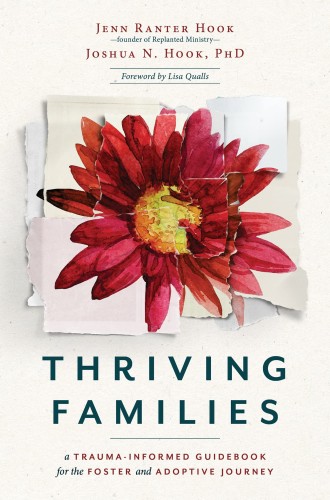Is being adopted or fostered always traumatic?
Jenn Ranter Hook and Joshua Hook say yes—and offer families concrete tools to support children.
Midway through Thriving Families, the authors tell the story of a young boy named Damen. Joanne and Tom, who have been his foster parents for a year and a half, are thrilled when they learn that they can legally adopt him. They decide to throw an “adoption day party,” a celebration with close friends that presumes Damen is joyful about his adoption. Damen, however, refuses to come out of his room on the day of the party. He later says that the day of his adoption was one of the “saddest days of his life” because it meant he had to give up his hopes of returning to his birth home. Damen’s story displays not only the reality of adoptee grief but also the importance of adoptive parents acknowledging it—which is one of the main themes running through the book.
Thriving Families is essential reading for all prospective and current adoptive and foster parents, as well as those who support them. Coauthors Jenn Ranter Hook and Joshua Hook dive into misconceptions about adoption, share powerful anecdotes about family situations, equip parents with concrete ways to support adopted and fostered children, and prime readers for further conversation by offering thoughtful questions at the end of each chapter. They do more than state theory about how to create a successful family; they help readers do the work.
The Hooks believe that fostering and adoption always entail some level of trauma for the child; thus, they aim to reeducate parents from a trauma-informed perspective. Adopted and fostered children are more susceptible to physical, emotional, and mental struggles than other children. The Hooks offer a comprehensive explanation of this phenomenon, based on Jenn’s years of experience as a social worker for children in foster care.





